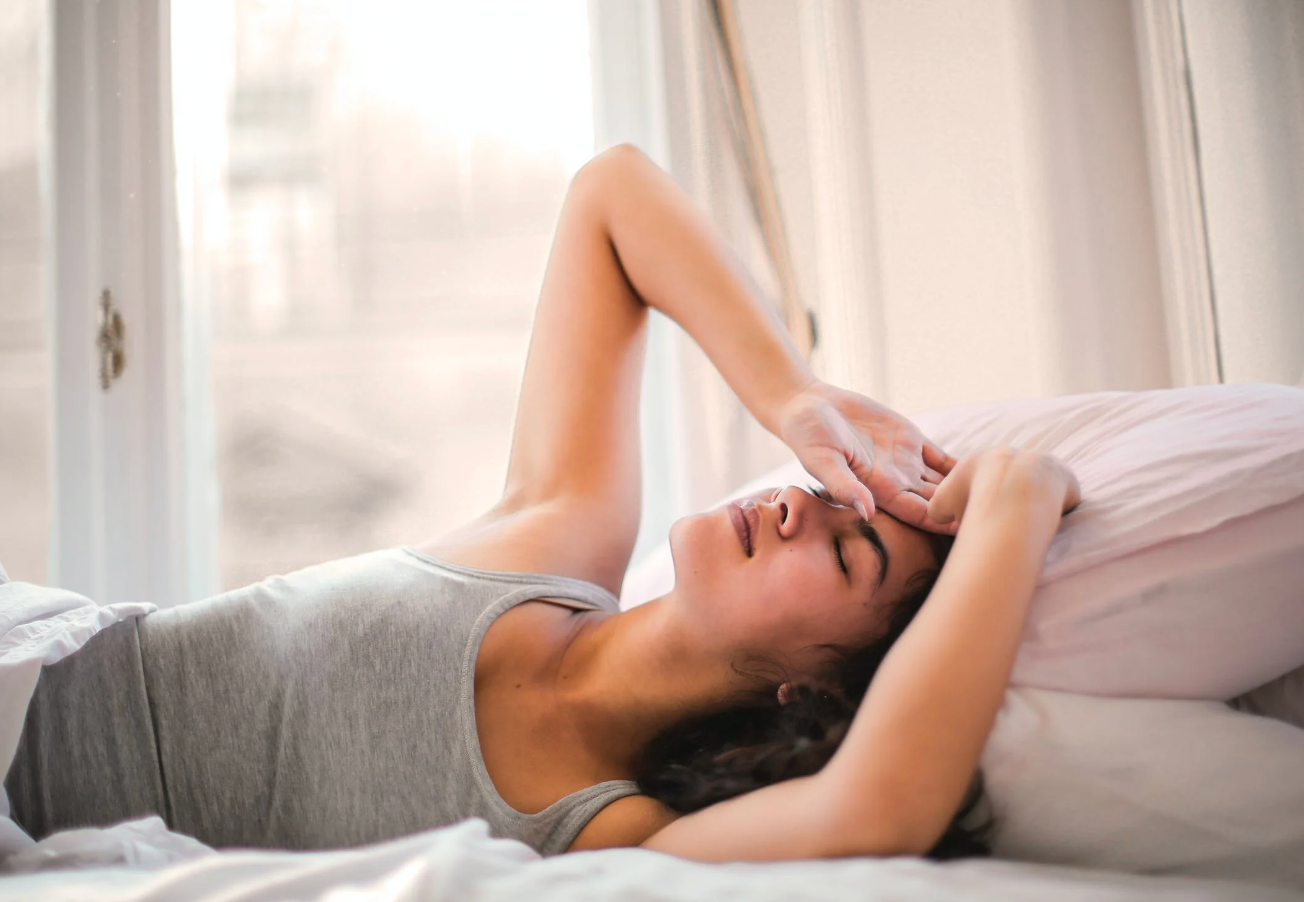
5 Ways to Get Better Sleep
We all know sleep is important. Who among us hasn’t experienced the hangover-ish feeling of trudging through a day after not getting enough zzz’s?
But grogginess and feeling tired aren’t the only negative effects of getting too little sleep. It also impacts your hormones in ways that have far-reaching impacts.
That’s because most of your hormones are released according to your sleep-wake cycle, also known as your circadian rhythm. When your body is running on an inconsistent or insufficient circadian rhythm, it wreaks havoc on your hormones. Sleep helps you regulate cortisol, hunger hormones, progesterone, estrogen, melatonin, and thyroid hormones.¹
Missing sleep can lead to reduced immunity, more frequent infections, increases in illnesses, spikes in appetite, higher calorie consumption, weight gain.² Which is a big problem considering that 1 in every 3 Americans doesn’t get the minimum recommended 7 hours of sleep per night.³
We know it can be hard to get into the groove of healthy sleep habits, especially if you find yourself drawn to watching Netflix to unwind from a busy day. But trust us, getting that good night’s sleep is well worth the sacrifice of just one more episode.
Here are some tips to help you get better sleep immediately:
-
Eat foods that promote restful sleep - Did you know that the foods you eat can impact how well you sleep? It’s true! For example, sunflower seeds specifically help support progesterone levels during the second half of your cycle, while magnesium-rich pumpkin seeds have a calming effect. Eat foods rich in magnesium like greens, nuts, and beeya’s seed cycling blend daily. Incorporating tryptophan rich foods like chicken, turkey, eggs, pumpkin and sesame seeds and fish to also enhance the quality of your sleep.
-
Limit your caffeine intake - More than half of us are genetically predisposed to metabolize caffeine at a snail’s pace. So that afternoon cup of coffee to get you past your slump? It’s likely keeping your brain wired way past the time you should be sleeping. If you aren’t ready to swear off caffeine completely, try cutting back and have a caffeine cutoff no later than 6 hours before you plan to wind down for bed.
-
Set a bedtime for yourself (and your electronics) - Set a bedtime that will allow you to get 7-9 hours of sleep, then set a bedtime for your electronics at least 2 hours before you try to catch some zzz’s. It might help to make your bedroom a no-phone zone and use a sunrise alarm instead of your phone since blue light disrupts sleep.
-
Be consistent with your sleep schedule - If we don’t get enough sleep during the workweek, we usually shrug it off assuming we can sleep in on the weekends to balance out our sleep deprivation. Unfortunately, there’s no such thing as “catching up”⁴ on sleep. Chronic undersleep will get you in the end, so best to keep a consistent sleep schedule 7 days a week.
-
Keep it cool - The temperature of the room you sleep in is one of the most important factors in getting a good night’s sleep, and experts say it’s best to err on the cool side of the pillow. Keeping the thermostat at 65 degrees at night (give or take a couple degrees) helps your body settle in to sleep as your body temperature naturally drops at night.
Studies have shown that getting a good night’s sleep is every bit as important to your health as exercise and diet.⁵ Try some of these tips as you build a new bedtime routine, and soon you’ll feel ready to take on the day (even without that extra cup of coffee).
Sources:
¹ https://www.healthline.com/health/sleep/how-sleep-can-affect-your-hormone-levels
² https://www.healthline.com/health/sleep/how-sleep-can-affect-your-hormone-levels
³ https://essayhub.com/study/one-third-of-adults-fail-to-get-sufficient-sleep
⁴ https://www.ncbi.nlm.nih.gov/labs/pmc/articles/PMC2892834/
⁵ https://healthysleep.med.harvard.edu/need-sleep/whats-in-it-for-you/health
